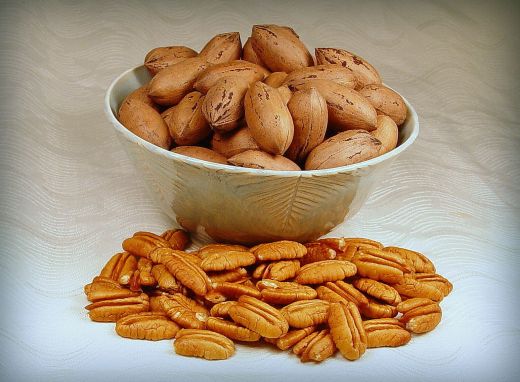The Avalon Pecan is being released as a scab resistant cultivar for planting throughout the southeastern pecan belt. It has shown very strong resistance to pecan scab. Avalon is late to break bed in the spring which indicates some measure of frost avoidance if planted in the northern part of Georgia. The harvest date put it in the early mid-season harvest period. Avalon has medium susceptibility to black pecan aphid which may require some sprays in some years.
Nut size (46 nuts/lb) and percent kernel (53.7%) fall within the range needed for optimum prices in the current market. Ther is currently no other highly scar resistant that has the size and quality of Avalon, except for the recent UGA releases 'Huffman', 'Tanner', and 'Whiddon'. Nut shells have moderate shell striping which extends form the apex to the equator. But shape is oblong with a cuspidate base and an acute, grooved apex.
Breeder
Dr. Patrick Conner
Dr. Patrick Conner is an Associate Professor at the University of Georgia in the Department of Horticulture. He leads an active pecan-breeding program with the goal of producing new disease-resistant cultivars for use in the southeastern United States. Conner manages the University of Georgia’s muscadine grape and low-chill peach breeding programs, and he is also involved in a cooperative project with the USDA and University of Florida to produce mid-chill peach cultivars.
Dr. Conner earned his B.S. degree from Purdue University Horticultural Science and Technology, and Ph.D. from Cornell University in Plant Breeding. During his doctoral research at the New York State Agricultural Experiment Station, he produced molecular linkage maps of two apple progenies and used these maps to help explain the inheritance of several important horticultural traits in apple.
After completing his doctoral degree, Dr. Conner spent a year at Cornell as a post-doctoral associate in Dr. June Nasrallah’s lab, studying self-incompatibility in Brassica. From Cornell, Dr. Conner travelled to the University of Maryland to work as a post-doctoral associate in Dr. Timothy Ng's melon breeding program. While at Maryland, he worked to understand the role antioxidants such as Vitamin C, Vitamin E, and glutiathione play in protecting ripening melons from senescence.
Affiliations
- Department of Horticulture
- University of Georgia, Tifton Campus

